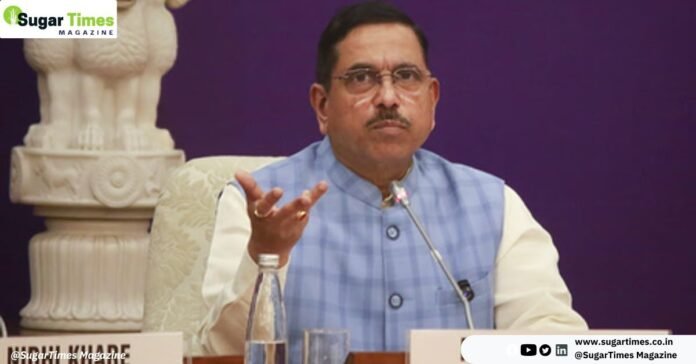India’s Food Minister, Pralhad Joshi, believes the country has the potential to become a major exporter of ethanol. Speaking at a Grain Ethanol Manufacturers Association (GEMA) event in New Delhi, he encouraged ethanol producers to boost their production and look beyond domestic markets.
“India should aim to enter the global ethanol market,” said Joshi, echoing a vision earlier shared by Home Minister Amit Shah. He stressed that adopting sustainable technologies, involving farmers, and developing rural industries are key to making India a global example of clean energy and rural development. This, he said, would support the goal of making India a developed nation (“Viksit Bharat”) by 2047.
The Minister also praised the early achievement of India’s E20 goal — blending 20% ethanol in petrol — five years ahead of schedule, calling it a result of the Prime Minister’s forward-thinking leadership.
To strengthen India’s clean fuel future, Joshi outlined new biofuel goals:
-
5% biodiesel blending by 2030
-
Sustainable Aviation Fuel (SAF) targets: 1% by 2027, 2% by 2028, and 5% by 2030
He also highlighted the National Green Hydrogen Mission, which focuses on producing, using, and exporting green hydrogen. A Centre of Excellence for Biofuels has been established at the National Sugar Institute in Kanpur to drive innovation in this field.
Minister of State, Nimuben Bambhaniya, added that India is now the third-largest ethanol producer in the world and continues to grow rapidly. She emphasized that ethanol is more than just a fuel policy — it’s also a strategy for empowering rural communities.
India has come a long way since the start of its ethanol blending program. Blending has grown from 38 crore liters in 2013-14 to over 707 crore liters in 2023-24, helping the country reach an average blend rate of 14.6% last year.
In the current ethanol supply year (2024–25), ethanol blending hit 19.9% in June 2025, with an average of 18.9% from November to June — putting India very close to its 20% blending target for 2025-26.





